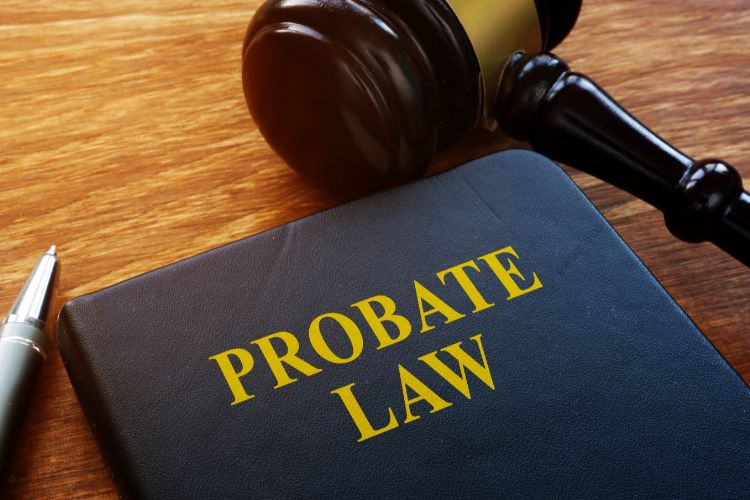As digital assets become an increasingly significant part of high-value estates, understanding how probate courts handle them is crucial for estate planning. From cryptocurrencies and online accounts to intellectual property and digital media collections, these assets are unique in their management and transfer.
For high net worth individuals, the complexity of digital assets requires careful planning to ensure that they are properly valued, accessed, and distributed during probate.
Peabody Law Firm, located in Southlake, TX, and serving clients in Westlake, Trophy Club, Colleyville, Keller, and surrounding communities, provides expert guidance in navigating the intersection of probate and digital assets in high-value estates.
What Are Digital Assets?
Digital assets encompass any form of online or electronically stored property. For high net worth individuals, these assets can have significant financial and sentimental value.
Common examples include:
- Cryptocurrencies: Bitcoin, Ethereum, and other digital currencies held in online wallets or on blockchain platforms.
- Online Financial Accounts: PayPal, Venmo, or online brokerage accounts.
- Intellectual Property: Copyrighted works, trademarks, patents, and royalties from digital media like music, books, or software.
- Digital Media Collections: E-books, online music libraries, photo collections, or videos.
- Domain Names and Websites: High-value domain names, blogs, or websites with substantial traffic or revenue streams.
- Social Media and Email Accounts: Accounts on platforms like Instagram, Facebook, or Gmail, which may contain valuable content or personal information.
- Online Business Assets: E-commerce stores, digital storefronts, or subscription-based services.
Challenges of Digital Assets in Probate
Unlike physical assets, digital assets come with unique challenges during probate:
- Access Issues: Many digital assets are secured by passwords or encryption, making them inaccessible without proper authorization or login credentials.
- Lack of Clear Ownership: Digital assets may not have clear legal ownership, particularly if they are governed by the terms of service agreements with online platforms.
- Privacy Laws: Federal and state privacy laws, such as the Stored Communications Act, can restrict access to digital accounts, even for authorized heirs.
- Valuation Complexity: Determining the value of digital assets, such as cryptocurrencies or intellectual property, requires expertise and can fluctuate based on market conditions.
- Tax Implications: Digital assets may be subject to estate taxes, capital gains taxes, or income taxes, depending on their nature and value.
- Lack of Inclusion in Estate Plans: Many estate plans fail to address digital assets, leaving executors and heirs with no clear guidance on how to manage or distribute them.
How Probate Courts Handle Digital Assets

Probate courts oversee the administration and distribution of an estate’s assets, including digital assets. However, the process for handling digital assets is still evolving and can vary depending on state laws and the nature of the assets.
1. Identifying and Locating Digital Assets
- The executor must identify all digital assets in the estate and locate the necessary access credentials, such as usernames, passwords, and private keys. Without these, accessing the assets can be extremely challenging.
- Probate courts may require the executor to provide documentation proving ownership of digital assets, such as account statements or blockchain records.
2. Accessing Digital Accounts
- Executors often face hurdles in accessing online accounts due to privacy laws and terms of service agreements. Some states, including Texas, have adopted the Revised Uniform Fiduciary Access to Digital Assets Act (RUFADAA), which grants executors limited authority to access certain digital accounts with court approval.
3. Valuation and Appraisal
- Probate courts may require a professional appraisal of digital assets to determine their fair market value. This is especially important for assets like cryptocurrencies or intellectual property, which may have fluctuating or intangible values.
4. Tax Reporting and Compliance
- Digital assets must be included in the estate’s tax filings. Executors are responsible for reporting their value, calculating any taxes owed, and ensuring compliance with state and federal laws.
5. Distribution to Beneficiaries
- Once the digital assets are identified, valued, and taxes are settled, the probate court oversees their distribution to the rightful heirs. Executors must follow the instructions outlined in the will or trust to allocate these assets.
Strategies for Managing Digital Assets in Probate
To ensure that digital assets are properly handled during probate, high net worth individuals should consider the following strategies:
1. Create a Digital Asset Inventory
Maintain a comprehensive inventory of all digital assets, including:
- Store this inventory securely, using a digital password manager or encrypted document, and ensure that your executor knows how to access it.
2. Use Trusts to Avoid Probate
- Placing digital assets in a trust can allow them to bypass probate, ensuring a more private and efficient transfer to beneficiaries. Trusts also provide greater control over how digital assets are managed and distributed.
3. Appoint a Digital Executor
- In addition to a traditional executor, appoint a digital executor who is familiar with managing digital assets. This individual should have the technical knowledge and legal authority to access and distribute digital accounts.
4. Include Digital Assets in Your Estate Plan
- Clearly outline how your digital assets should be managed and distributed in your estate planning documents, such as your will or trust. Specify beneficiaries for high-value digital assets and include instructions for accessing them.
5. Review and Update Terms of Service Agreements
- Many online platforms allow users to designate a legacy contact or beneficiary for their accounts. Review the terms of service agreements for your digital accounts and update them to align with your estate plan.
6. Address Tax Implications
- Work with an estate planning attorney and tax advisor to ensure that digital assets are properly valued and that any tax liabilities are addressed. Strategies such as gifting or charitable donations may help reduce tax burdens.
Common Mistakes to Avoid
- Failing to Document Digital Assets: Without proper documentation, digital assets can be overlooked or lost during probate.
- Ignoring Privacy Laws: Attempting to access digital accounts without legal authorization can result in penalties or account termination.
- Relying Solely on a Will: Wills are public documents and may not provide the privacy or flexibility needed for digital assets. Trusts are often a better option.
- Neglecting Cryptocurrencies: Cryptocurrencies are particularly vulnerable to being lost without proper planning, as they require specific access keys to retrieve.
How Peabody Law Firm Can Help
At Peabody Law Firm, we understand the complexities of managing digital assets during probate for high-value estates.
Our approach includes:
- Comprehensive Estate Planning: We help you incorporate digital assets into your estate plan, ensuring they are properly documented and protected.
- Digital Asset Trust Creation: Our team assists in establishing trusts to safeguard digital assets and streamline their transfer to beneficiaries.
- Probate Guidance: We provide expert legal representation to executors and heirs, ensuring digital assets are handled efficiently and in compliance with the law.
- Ongoing Support: We offer continuous support to review and update your estate plan as your digital asset portfolio evolves.
Protect Your Digital Legacy with Expert Probate Planning
Managing digital assets during probate requires specialized knowledge and planning. If you are in Southlake or the surrounding areas, contact Peabody Law Firm to discuss how we can help you integrate digital assets into your estate plan and navigate probate challenges.
Secure your digital legacy and provide peace of mind for your loved ones with our expert legal services.

